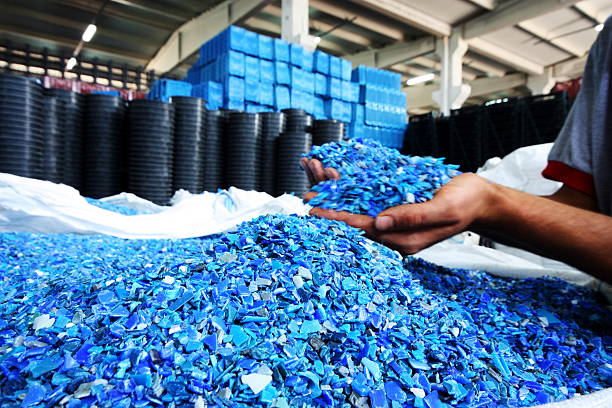"Plastic Recycling: An Essential for Environmental Health"
As the world population grows, so does the total amount of waste that people produce. Unfortunately, the disposal of this waste is just a problem that cannot be ignored. Thankfully, recycling has turned into a solution to the ever-increasing waste problem. One of the most significant contributors to waste is plastic manufacturing, which includes led to plastic pollution and ecological damage. However, the ability of plastic recycling has emerged, rendering it possible to show waste into valuable resources. In this informative article, we'll dive into the topic of Waste Plastic and how it may truly transform our waste problem.

1. What's plastic recycling?
Plastic recycling is a process where plastic waste materials are collected and processed into new products. The collected plastic waste is then sorted by type and color and then cleaned to eliminate any impurities. The cleaned plastic is then melted down and transformed into pellets that can be used to create new services, such as for example plastic bags, toys, and containers.
2. The advantages of plastic recycling
Plastic recycling has numerous benefits, including reducing plastic pollution and saving energy. The manufacturing of plastic products requires significant energy, and by recycling plastic, we could reduce the total amount of energy needed to produce new products. Additionally, plastic recycling saves resources and reduces the amount of plastic waste that ends up in landfills or oceans. Recycling plastic waste also offers economic benefits, as recycled plastic materials could be sold and used to create new products.
3. The process of plastic recycling
The method of recycling plastic requires different steps, including collection, sorting, cleaning, and processing. Collection involves gathering plastic waste materials, which is often done through recycling programs or by waste management companies. The collected plastic is then sorted by type and color to simply help identify the specific form of plastic required for a particular product. When the plastic is sorted, it's cleaned to get rid of any impurities that may affect the caliber of the new product. The plastic is then processed by melting it down and transforming it into pellets that can be used to generate new products.
4. The challenges of plastic recycling
Despite the benefits of plastic recycling, you can find still challenges connected with the process. Among the biggest challenges is the fact not totally all plastics could be recycled, as some plastics are non-recyclable and could cause issues in the recycling process. Additionally, the sorting process may be time-consuming and costly, making the procedure of recycling plastic more difficult for waste management companies. Finally, the recycling infrastructure in several countries remains developing, which could lead to a lack of resources and facilities for recycling plastic waste.
5. The ongoing future of plastic recycling
The continuing future of plastic recycling is bright, as advancements are increasingly being made to really make the process more effective and effective. Governments around the world are implementing policies and regulations to advertise plastic recycling and reduce plastic pollution. Some companies will also be working to develop new technologies that can enhance the recycling process and allow it to be more cost-effective. With your innovations, plastic recycling gets the potential to end up being the norm, which could reduce waste, save resources and develop a more sustainable future.

Conclusion:
Plastic recycling has transformed the way in which we think about waste. Using its numerous benefits, including reducing plastic pollution and saving energy, plastic recycling has become an essential process in developing a more sustainable future. Although you will find challenges connected with the recycling process, innovations and advancements in technology are making the method more efficient and cost-effective. The ongoing future of plastic recycling is bright, and with the aid of government policies and regulations and the efforts of an individual and organizations, we can turn waste into valuable resources.
